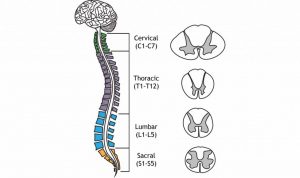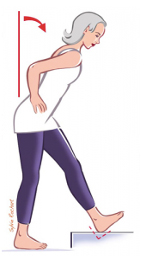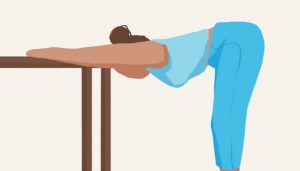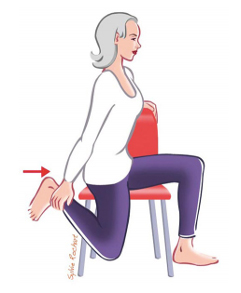Back Pain Physiotherapist in London. We offer Back Pain Physiotherapy Treatment in Monument, Belgravia & Clapham or at home. Our Back Pain Physiotherapy Treatment is covered by AXA, BUPA, Cigna, WPA and other Health Insurance.
Physiotherapist in London specialised in Back Pain Treatment

Back Pain Physiotherapist in London Monument, Belgravia and Clapham
Our back pain physiotherapists offer back pain treatment in our 4 physiotherapy practices in London.
Our back pain physio clinics are located in:
- Monument near Bank, Moorgate and London Bridge
- Belgravia Westminster near Victoria, Knightsbridge and Sloane Square
- and 2 clinics in Clapham near Battersea and Balham (Clapham Common and Clapham South)
Our clinics are located within walking distance of the main Central London stations and are easy to reach from anywhere in London. If you cannot find a suitable appointment in your clinic of preference, you can choose any of the others as our clinics are located just 10-15 minutes from each other.
Back pain Physio Treatment at Home in London: Home Visit in London
For patients who suffer too much from back pain or just had an injury that doesn’t allow them to come to the clinic, we also offer back pain treatment at home in central London
Back pain Physiotherapist covered by Health Insurances and BUPA, AXA Cigna registered
Our physiotherapy and osteopathy treatments are covered by most health insurances and are Bupa registered & recognised (BUPA Global and BUPA UK), Axa registered & recognised (AXA International, AXA PPP), Cigna registered & recognised and WPA registered & recognised
For back pain appointment with our physiotherapist at home or in our practices in Moorgate Monument, Belgravia or Clapham : 0207 125 0262 / 0782 455 3765
Scroll down for more information about back pain, along with some physio tips and exercises to treat and prevent your back pain at home.
If you are an Axa or Bupa patient, you cannot book online. Please call our office with your authorisation number.
If you cannot find an appointment that suits you, call us or send us a message: we will do our best to find you a slot.
Back Pain Information, Back Pain Exercises & Physiotherapy tips to treat your back pain yourself
How can I tell if my symptoms are back pain-related?
Depending on the underlying causes, back pain can be felt in different ways:
- A dull sensation in the lower back
- A burning pain coming down from the lower back to the backs of the thighs, sometimes into the lower legs or feet, which may be accompanied by numbness or tingling (symptoms of sciatica).
- Back Muscle spasms and tightness in the lower back, pelvis and hips
- Sharp, stabbing pain in the back
- Back Pain that worsens after prolonged sitting or standing
- Difficulty standing, walking or even getting up
Where does my back pain come from?
There are many reasons why back pain can occur: a sudden movement, or a repetition of everydaymovements, an accident, poor physical condition or bad posture are all potential underlying causes that can affect your back. Over time, certain parts and structures of the back will either stretch or contract too much, and that’s when symptoms will start to appear (for example, sudden movements can trigger lumbago).
Generally speaking, many cases of back pain are triggered without any specific movement. This is often referred to as “false movements”: ordinary movements repeated in everyday life.
Your physiotherapist for back pain will be able to determine the origin of your back pain following a specific back assessment
However, back pain can also be the consequence of a more serious disease or condition, such as:
- Inflammatory rheumatic diseases such as ankylosing spondylitis
- Vertebral fracture
- Osteoporosis
- Lymphoma
- Infection
- Intra-spinal or bone tumours
- Spinal deformity
What type of back pain do I have? Acute Back Pain or Chronic Back Pain
There are three types of back pain, which physiotherapist describe by their duration:
- Acute back pain is a so-called normal reaction of the body to an injury or tissue damage. It usually occurs quite suddenly and lasts a few days or weeks before gradually subsiding.
- Subacute back pain lasts longer, between 6 weeks and 3 months. This type of back pain is often caused mechanically, such as muscle fatigue or joint pain. A medical check-up may be considered, especially if the pain is intense and limits the ability to sleep, work or take part in daily activities.
- Chronic back pain is defined as more severe pain in the lower back that lasts for more than 3 months and does not respond to initial treatments. It requires a thorough medical assessment.
Furthermore, we can also dissociate different types of back pain by where they are located:
- Cervical pain situated in the upper back region
- Back pain, which refers to the middle back and is the less frequent type of back pain
- Lumbar pain – aka lower back pain, the most common type.
The origin and type of back pain vary from person to person. It should be noted that certain professional sectors are known to cause work-related back pain, such as the construction and health sectors, for example.
How to relieve my back pain at home? Physiotherapist tips
At first glance, if the pain is mild, back pain can be relieved by taking an anti-inflammatory medication, with moderate rest and limited activity if it involves the back (but be careful, without complete bed rest, as some movement is still necessary) and by applying ice to the affected area.
How can I prevent back pain? Physiotherapist tips
It is essential to prevent the onset of back pain as much as possible and avoid painful episodes. By improving your health and physical condition, as well as your posture, and by changing your lifestyle, you can avoid back pain or prevent it from recurring. Your physiotherapist can help you set up a back exercise program tailored to your needs and activities or sports (Sports physiotherapist)
Exercise and back pain physiotherapy advice
Of course, it is advisable to avoid impact sports such as tennis, rugby, horse-riding or combat sports, or even running for example – and concentrate mainly on low-impact exercises.
Walking, swimming, Pilates or yoga are great choices for exercise because they don’t compress or twist the back. Even better, low-impact exercises can help improve the function of your muscles by:
- Strengthening your muscles
- Stretching your muscles
- Exercising your joints
Don’t hesitate to talk to your back pain physiotherapy specialist about the best activities to try to develop your muscle strength and maintain your flexibility. Pilates is our favourite choice
Stretch and back pain physio advice
In order to prevent and/or relieve back pain, our London back pain physio advises adding a small routine of stretching exercises to your daily routine. There are a number of exercises you can do to reduce general back pain. Most are very simple to do and do not require any special equipment.
If you suffer from chronic back pain, the best thing to do is consult a back pain physiotherapist in London who will advise you on the best stretches to do to maintain your back.
Pay attention to your weight to save your back from too much pressure
Being overweight can put a lot of strain on your back muscles, so losing weight can be an essential part of your treatment, but it should always be accompanied by strengthening.
Muscular relaxation may be linked to weight gain and a shift in the centre of gravity, which can have an impact on the arch of your back. Muscles and ligaments are then put under greater strain, leading to back pain.
You can, of course, seek the help of our professional sports physio to help you get back into shape and lose weight healthily and safely.
Protect your posture, your back must be straight
It’s important to set up a good workstation, with a chair that provides good support for the lower back. Try to keep your knees and hips at the same level, get up every half hour to move around a bit and change position frequently.
Our London back pain physiotherapy treatment can include lifestyle advice on the best workstation for your back, as well as stretching exercises to do regularly.
As far as sleep is concerned, it’s also best to sleep on your back with a pillow under your knees, or in a dog-leg position to avoid arching your back too much.
Avoid certain movements to not strain your back muscles
Whether you suffer from back pain or not, it is always necessary to avoid a certain number of traumatic movements for your spine. Limiting these movements and postures as much as possible will prevent any problems from arising.
Our Back pain physio tips:
On a day-to-day basis, you should avoid:
o Lifting heavy loads while bending forward, without bending your legs. If you have to lift, keep your back straight and only bend at the knees, to make sure you hold the load close to your body
o Carrying something with your arms stretched upwards
o Leaning forward with your legs stretched out
o Twisting your back too often
o Wearing high heels regularly
If you apply these physio tips now, your back will thank you!
Manage your stress as it impacts your back
A number of studies have shown that there is an obvious relationship between stress and back pain. Low back pain and other types of back aches often occur during intense periods of overwork and stress. This is due to the increased muscular tension associated with stress, which when it’s too great, can block the back in certain areas of the spine, most often in the lower back (lumbar) region.
Muscular tension is not the only cause of back pain. Chronic stress increases the resistance of cells to cortisol, which reduces the anti-inflammatory effect of this hormone and promotes inflammation in the body. This can increase the frequency of painful flare-ups linked to conditions such as osteoarthritis or spondylitis.
To avoid tension and back pain, we recommend physical activity to help you breathe easier and release any tension. Relaxation, meditation or yoga can be effective remedies.
Try to take regular breaks during the day by walking a little and doing some stretches. Also remember to hydrate yourself as much as possible, in order to help your body eliminate toxins.
If you suddenly feel stressed or anxious, try to take a break for a few minutes and take the time to lie down and practice breathing exercises to relax.
You can use breathing apps to slow down your heartbeat and feel stress relief.
If you are an Axa or Bupa patient, you cannot book online. Please call our office with your authorisation number.
If you cannot find an appointment that suits you, call us or send us a message: we will do our best to find you a slot.
Exercises for Back Pain that you can do yourself
What back pain stretching exercises can I do at home? London Physio advice
There are various exercises that can help stretch the back. They are useful for relieving lower back pain and preventing its recurrence. However, it’s also important to speak to a professional such as a back pain physiotherapist in London who will be able to assess your specific type of pain and give you further advice on which type of exercises are good for you and your own situation.
Our Back pain physiotherapist advises 5 generic exercises that you can do at home on a regular basis, to help avoid or relieve back pain:
1/ Stand with your back to the wall, your feet slightly off the ground.
Raise your arm as high as possible while pushing the top of your head upwards, keeping your chin tucked in. Hold for a few seconds then rest for another few.
2/ Stand with your back straight and your hands on your hips. Put one leg stretched out on a low step or wall, all depending on your flexibility. You can also use a chair or a bench. Lean forward while keeping your back straight. You can also stretch your calf by raising the ball of your foot.
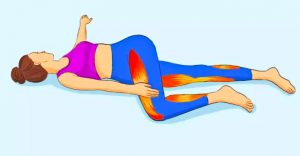
4/Move your buttock and feet backward while keeping your back straight, up until your legs are at right angles to your trunk and arms. Hold for a few seconds then rest for another few.
5/ Sith on the edge of a chair, on one buttock, and with one leg bent towards your buttock. Hold for a few seconds, rest for another few, then repeat the exercises five times before switching sides.
Back Pain Physiotherapy
Search the Help of a physio if your back pain doesn’t go away.
If your back pain persists beyond rest and medication, and if it becomes disabling, you should consult a physiotherapist. More rarely, back pain may reveal a more serious underlying problem. Seeing a doctor and attending sessions with a back pain physiotherapist will not only help you receive appropriate treatment but also prevent the onset of potentially more serious problems.
When should I worry about back pain?
Here are back pains and accompanying symptoms that should not be ignored:
- Back pain with loss of bladder control: if your back pain is accompanied by an inability to control your bladder or bowels, you first must go to A&E.
- Back pain and fever: when combined with a fever, back pain can hide something more serious, such as an infection
- Backache accompanied by leg pain: pain radiating from the buttocks down the leg, accompanied by numbness, tingling or weakness in the leg, is a sign that a nerve or group of nerves has been pinched. The cause may be a bone spur (a bony growth around a joint) or stenosis (a slow narrowing of the spinal canal).
- Pain in the back of the neck: pain in the upper back accompanied by tingling or weakness in the hands, and/or lack of balance when walking, may be due to a condition in the spinal cord.
Who to see for back pain in London? Back Pain Physio Treatment in London
With back pain physiotherapy you will be able to receive personalised advice, exercises and manipulations if necessary. Our back pain physiotherapist in London will also be able to refer you to a consultant for further exams or treatment if your condition is more serious.
Our London back physiotherapist will assess you to gain a better understanding of your condition and offer you a treatment tailored to your needs. Back pain physiotherapy often includes treatment methods such as:
- Massages to relax muscles and relieve pain
- Back Muscle stretching to relieve pressure on the spine
- Tension release techniques
- Back Muscle-strengthening exercises
- Advice on the correct movements to do and those to avoid, as well as on the correct posture to adopt
These methods form the basis of a complete program of back pain maintenance exercises to be practiced at home between each back physiotherapy appointment. The aim of our back pain London physio rehabilitation is to make you independent and to correct your back pain with lasting results.
If you are an Axa or Bupa patient, you cannot book online. Please call our office with your authorisation number.
If you cannot find an appointment that suits you, call us or send us a message: we will do our best to find you a slot.


